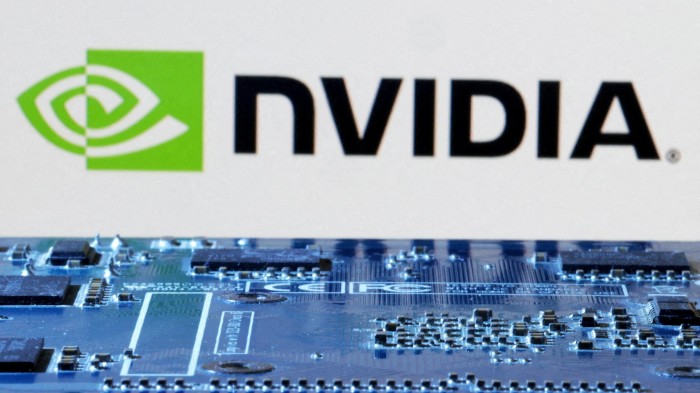Unlock the Editor’s Digest for free
Roula Khalaf, Editor of the FT, selects her favourite stories in this weekly newsletter.
Many factors can be thanked for the rich market returns that have marked 2024. Interest rates have eased and the global economy has seemed more resilient than some expected. And one particular investment theme, in the form of artificial intelligence, has helped turbocharge performance for the US megacap, shares among others.
That reminds us of the power of a market narrative, as well as the fact that tech plays and racy growth stocks can still make huge gains even at a time when they already looked expensive on a variety of measures. It also has a knock-on effect for portfolios: it forces us to consider whether to take profits in certain places, for example.
That is certainly a case for some thematic exchange traded funds, which focus on all manner of concepts from the digitalisation of society to ecommerce, demographic shifts and decarbonisation. Having proved hugely popular back in the period dominated by the Covid-19 outbreak, they have had a much more mixed run of performance since, but still linger in many a portfolio.
Lots of these funds are pretty tech-orientated, however, featuring names such as the runaway AI play Nvidia. With the Magnificent Seven running hot, many of these portfolios have again produced soaring returns this year.
Analysis of a selection of popular thematic ETFs shows, predictably enough, that many of the more tech-minded funds have posted enormous gains both in 2024 and 2023 after a terrible 2022. The VanEck Crypto and BlockChain Innovators ETF (DAGB) has seen huge swings, with an 84 per cent loss in 2022 and a gain of more than 250 per cent in the following year.
A fund operating in a similar space, the Invesco CoinShares Global Blockchain ETF (BCHS), whose top five holdings comprise MicroStrategy, Taiwan Semiconductor Manufacturing Company, Monex Group, SBI and PayPal, had made a hefty 31 per cent return for 2024 by November 18, having already delivered a gain of nearly 50 per cent in 2023. This of course follows a disastrous spell that saw it lose 45 per cent in 2022.
There is a similar trend to be seen among some of the other biggest risers of 2024 so far. Names such as iShares Digitalisation (DGIT), VanEck Semiconductor (SMGB) and L&G Artificial Intelligence (AIAG) have posted some chunky gains this year and last, but shed much more than a simple MSCI World tracker did in the growth sell-off of 2022. Our table includes the SPDR MSCI World ETF (SWLD), a fund that sits in our Top 50 ETFs list, for the purposes of comparison.
We have spent plenty of time in the past outlining the failing of thematic ETFs. They attracted a huge amount of attention in the midst of the pandemic after some strong returns, but performance is often patchy at best.
Critics argue that they often come to a trend late (and often just as prices have peaked), and that thematics often either take too concentrated a bet on a few standout names within a theme, or conversely play it safe and have too diluted an approach.
To illustrate the second point, some ETFs billed as investing in space exploration stocks have in the past held the likes of Netflix, presumably more to provide liquidity to a portfolio rather than because of its thematic fit.
Returning to performance, investors have often fallen victim to a form of market timing by piling into these funds just before things turn — with examples including the style rotation from growth to value in late 2020, or the growth sell-off that took hold in 2022. It is important to be aware of the risk of such big losses, given they can take a long time to recover from.
To employ some selective timing and test this theory, we have looked at how much an investor would have made, or lost, had they invested a lump sum into one of the names in the list at the start at 2022 and doggedly held on until now.
Fans of the humble MSCI World tracker will probably be pleased, with the SPDR fund up by nearly a third over this period. But the Invesco ETF at the top of the table, with its harrowing 2022 losses and massive subsequent gains, demonstrates the painful process of recovery, having made a gain of 6.9 per cent over that period.
Investors can argue that they would offset the effect of such relative underperformance either by making regular investments or buying the dip when valuations are depressed. But it is worth noting that some funds have recovered nicely even in our selective time period.
The VanEck fund is actually up by nearly 50 per cent over this timeframe, despite having lost more than a quarter of its value in 2022.
Given its remit and its huge recent gains, investors might be unsurprised to see that it has big positions in Nvidia (11.2 per cent of assets), TSMC (11.1 per cent), Broadcom (10.6 per cent) and ASML (8.3 per cent).
The fund has just 25 holdings. Given our points about concentration in such funds, it can always be worth checking just how chunky the biggest positions are and how many holdings there are: 30 or fewer will tend to suggest it is pretty concentrated. Investors should also remember that ETF portfolio disclosure tends to be pretty thorough, and you can find a full list of holdings on the fund’s website.
*Investors’ Chronicle offers an expert and independent view of the UK investment market. To find out more, visit investorschronicle.co.uk
Read the full article here

